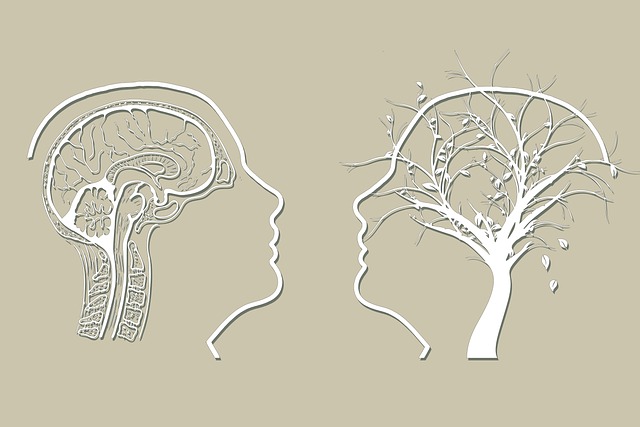Broomfield Blended Families Therapy focuses on teaching emotion regulation techniques to help blended families navigate complex dynamics. Through mindfulness, self-awareness, and compassion cultivation practices, families foster understanding and validate each other's feelings, strengthening emotional bonds and resolving conflicts effectively. Stress management workshops equip members with tools to identify and manage stress triggers, enhancing overall emotional resilience. By integrating learned skills into daily routines, individuals build resilience and significantly enhance their quality of life.
Emotion regulation techniques are essential tools for navigating the complexities of blended families. This comprehensive guide explores effective strategies, drawing on the expertise of Broomfield Blended Families Therapy. We delve into understanding emotional dynamics unique to these families, the pivotal role therapy plays in teaching valuable skills, and practical strategies for daily application. Discover long-term benefits and learn how to overcome challenges together, fostering healthier relationships and enhanced well-being for all involved.
- Understanding Emotion Regulation for Blended Families
- The Role of Therapy in Teaching Effective Techniques
- Practical Strategies for Daily Implementation
- Long-Term Benefits and Navigating Challenges Together
Understanding Emotion Regulation for Blended Families

In the context of Broomfield Blended Families Therapy, understanding and teaching emotion regulation techniques is paramount. Blended families often face unique challenges due to the integration of two distinct households and family dynamics. Each family member brings their own experiences, feelings, and coping mechanisms, which can sometimes create a complex emotional landscape. Effective emotion regulation strategies are essential tools for navigating these complexities and fostering healthy relationships within the blended family unit.
Compassion cultivation practices, grounded in mindfulness and self-awareness, offer powerful avenues for managing emotions. By encouraging open dialogue and fostering an environment of understanding, families can learn to recognize and validate each other’s feelings. This, in turn, strengthens emotional bonds and promotes effective conflict resolution. Additionally, incorporating Mind Over Matter principles helps family members understand that their thoughts and perceptions significantly impact their emotional states. Stress management workshops organized by the therapy organization equip blended family members with practical tools for identifying and managing stress triggers, thereby enhancing overall emotional resilience.
The Role of Therapy in Teaching Effective Techniques

Therapy plays a pivotal role in teaching effective emotion regulation techniques to individuals, especially those navigating complex family dynamics like Broomfield Blended Families. Skilled therapists employ various methods tailored to each client’s unique needs, focusing on enhancing emotional intelligence and coping strategies. Through structured sessions, they guide individuals through the process of identifying and understanding their emotions, fostering self-awareness—a cornerstone for managing intense feelings.
The therapeutic environment encourages exploration of underlying issues and provides a safe space for practicing new skills. Therapists teach empathy building strategies, stress reduction methods, and emotional well-being promotion techniques, enabling clients to better navigate life’s challenges. By integrating these learned strategies into daily routines, individuals can develop resilience and improve their overall quality of life.
Practical Strategies for Daily Implementation

Teaching emotion regulation techniques is a valuable skill, especially for individuals navigating complex emotional landscapes, such as those in Broomfield Blended Families Therapy settings. These strategies are practical and adaptable for daily implementation, catering to diverse needs within families. Incorporating emotional healing processes into routines allows family members to develop resilience and improve overall mental health awareness.
One effective approach is teaching deep breathing exercises, which can be a simple yet powerful tool during moments of heightened emotion. By practicing these techniques regularly, family members can learn to pause, regulate, and respond to conflicts or challenging situations more constructively, fostering healthier conflict resolution techniques within the home environment.
Long-Term Benefits and Navigating Challenges Together

Emotion regulation techniques offer long-term benefits for individuals and families, especially those navigating complex dynamics like Broomfield blended families. By teaching self-awareness exercises and stress management strategies, families can enhance their mental health education programs design. This proactive approach fosters resilience, enabling better coping mechanisms and stronger interpersonal connections.
Navigating challenges together becomes less daunting when equipped with these skills. Families can now recognize and manage emotional triggers, promoting a safer and more supportive environment. The journey towards harmonious relationships and improved overall mental well-being is facilitated by consistent practice and mutual understanding, creating a solid foundation for the future.
Emotion regulation techniques, when taught effectively, can significantly enhance the well-being of Broomfield blended families. By understanding complex emotions, leveraging therapy as a support system, and adopting practical strategies, parents and children alike can navigate challenges together, fostering a stronger, more resilient family dynamic. This holistic approach, coupled with continuous learning, ensures long-term benefits for all involved, creating a harmonious environment that resonates throughout the Broomfield blended family ecosystem.














